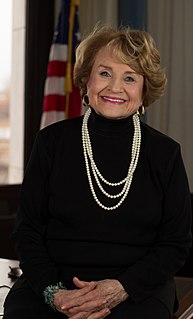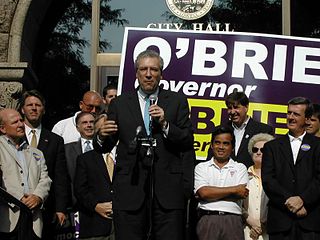A Quote by Vivek Wadhwa
I became an academic so that I could share my knowledge and experience with students.
Quote Topics
Related Quotes
I wanted to lose 30 pounds healthfully and still be able to enjoy my college experience. Having succeeded in doing just that, I wanted to share my experiences with others who could benefit from my direct knowledge of the difficulty of trying to balance college life with being healthy. It became a journey about healthy lifestyle choices, including tips and tricks for creating a new relationship with food where I was in control and could learn to love food healthfully again.
While the most disadvantaged students - most often poor students of color - receive the most considerable academic benefits from attending diverse schools, research demonstrates that young people in general, regardless of their background, experience profound benefits from attending integrated schools.
Poverty became something one could see and experience firsthand, no matter where one was on the economic ladder; it became something you could viscerally experience through the lives of friends, family, neighbors, colleagues. I'd venture to say it's a rare person in 2013 America who knows nobody who lost a job in the recession, or knows nobody whose home went underwater or who went into foreclosure.
For the academic the rhetorical sense of superiority through the possession of knowledge is essential for facing the daily grind, turning again to the otherwise boring article, braving the students who, fresh as each class may be, will still ask the same questions year after year. Psychological survival is not achieved without effort, and the environment must be managed, knocked about with one's elbows until it takes a shape comfortable to one's sense of self. This is not selfishness, for in reshaping the environment the academic is also reinvigorating the educational process.
The Common Core State Standards Initiative is an important step forward in ensuring that the United States remains competitive in the global economy. Career technical education (CTE) shares the Initiative s goal that all students must be college and career ready. CTE programs that incorporate the Common Core Standards will ensure students have the academic and technical knowledge and skills to be successful in the 21st century workplace.
Many faculty retreated into academic specializations and an arcane language that made them irrelevant to the task of defending the university as a public good, except for in some cases a very small audience. This has become more and more clear in the last few years as academics have become so insular, often unwilling or unable to defend the university as a public good, in spite of the widespread attacks on academic freedom, the role of the university as a democratic public sphere, and the increasing reduction of knowledge to a saleable commodity, and students to customers.
If the students don't want to learn about evolution, they shouldn't be in the course. A biology course that teaches creationism is not a science course, it's a religion course. So the students demanding that creationism be given credence in that course are out of line and are denying the academic freedom of the professor. They are calling into question the scientific basis of the material that's being presented. And students are not in a position to do that.
For some students, especially in the sciences, the knowledge gained in college may be directly relevant to graduate study. For almost all students, a liberal arts education works in subtle ways to create a web of knowledge that will illumine problems and enlighten judgment on innumerable occasions in later life.



































